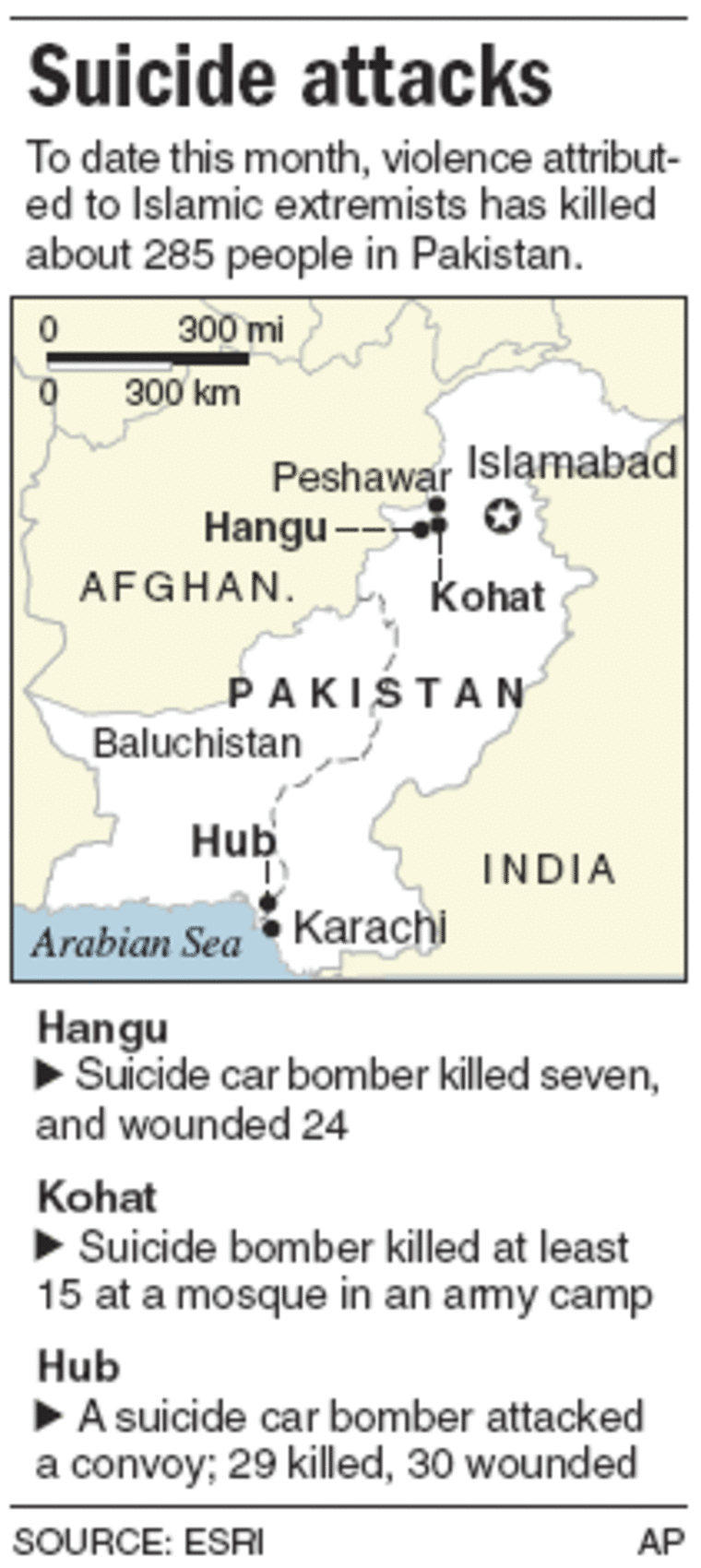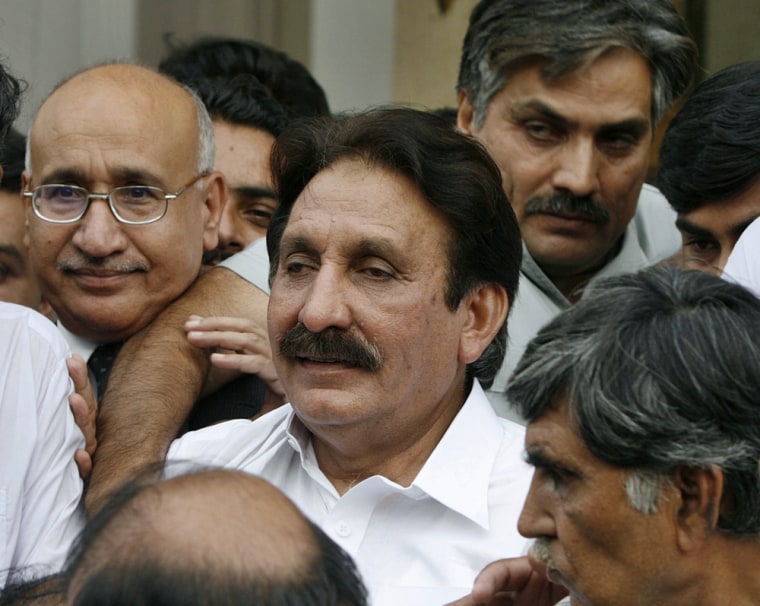The Supreme Court on Friday reinstated Pakistan’s top judge, ruling that his suspension by President Gen. Pervez Musharraf was “illegal” and dealing a major blow to Musharraf’s standing.
Presiding Justice Khalil-ur-Rehman Ramday said Musharraf’s order suspending Chief Justice Iftikhar Mohammed Chaudhry was “set aside as being illegal.”
Chaudhry’s March 9 suspension had sparked protests by lawyers and opposition parties that have grown into a powerful pro-democracy movement just as Musharraf faces a rising tide of Islamic militancy.
The verdict is probably the biggest challenge to Musharraf’s dominance since he seized power in a coup in 1999. It could further complicate his bid to win a new five-year presidential term this fall.
As lawyers celebrated outside the court in Islamabad, Chaudhry’s chief counsel, Aitzaz Ahsan, told reporters that the case alleging misconduct by Chaudhry had been “quashed.”
“He has been restored and it is a victory for the entire nation,” Ahsan said.
Reasons for dismissal?
The mish-mash of misconduct charges against Chaudhry included using influence to get his son a job, doctoring gasoline expenses and that he had a penchant for expensive cars.
The government filed a statement in the Supreme Court last month in which it also accused Chaudhry of harassing judges, showing bias in appointments and intimidating police and civil servants.
Musharraf’s real motive for trying to get rid of Chaudhry, many critics suspect, was that the judge could allow constitutional challenges to his plans to get re-elected by current assemblies before they are dissolved for a general election at the end of the year.
Opposition parties may also challenge Musharraf’s right to stand for a second term while still army chief, a post he is constitutionally obliged to give up by the end of the year.
It has been described as the biggest challenge to Musharraf since he seized power in a bloodless 1999 coup. The verdict could further undermine his standing, which has been crumbling both among voters and his political allies.
Talks with militants
Meanwhile, a 45-member delegation of tribal elders began talks with militant leaders near the Afghan border Friday in a bid to stem the spiraling violence that erupted after Islamic extremists scrapped a peace deal.
Pakistan’s government has attached high hopes to the success of the peace talks in Miran Shah, the main town of the troubled North Waziristan tribal region.
Suicide attacks, shootings and a siege and army raid on a mosque in Islamabad have killed about 288 people in Pakistan so far this month, raising concern about the threat posed by Islamic extremists and the country’s political stability.
In the latest attack, a suspected militant struck his explosive-laden car with a small checkpoint on the outskirts of Miran Shah on Friday, killing one soldier and two passers-by, according to two local security officials.
The officials, who spoke to The Associated Press on condition of anonymity because of the sensitive nature of their job, said the attacker detonated the car bomb when asked to halt.
The attack comes a day after three suicide bombings in northwestern Pakistan and the south killed at least 51 people.
Peace deal in the works?
Violence has spread from Pakistan’s tribal areas to the capital and elsewhere since last week when militants abandoned a 2006 peace deal they signed with the government to stop attacks on troops and officials.

The militants ended the agreement after the army’s bloody assault on Islamabad’s Red Mosque last week.
On Friday, tribal elder Malik Nasrullah told The Associated Press before entering talks with militant leaders he was “optimistic” the peace deal with the government could be revived.
“We will meet with them to request that they reverse their decision to end the peace agreement,” said Nasrullah.
The meeting came a day after a suicide bomber driving a car hit a convoy carrying Chinese workers, killing 29 Pakistani bystanders and police, and prompting Musharraf to call for national unity against extremists.
Thursday’s attack targeting a minibus carrying about 10 Chinese technicians occurred as their convoy was passing through the main bazaar in Hub, a town in Baluchistan province near the southern port city of Karachi.
Later Thursday, a suicide attacker detonated a bomb at a mosque in an army cantonment in the northwestern town of Kohat, killing at least 15 people, officials said.
Also Thursday, a suicide car bomber detonated his explosives when guards prevented him from entering the parade ground of a police academy in another northwestern town, Hangu. Six bystanders and one policeman died.
